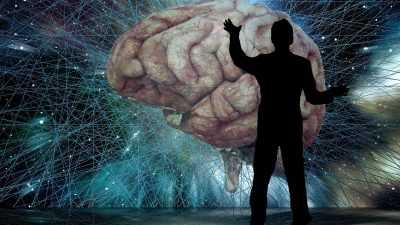Sleep is essential for survival.
The effects range from mild euphoria to severe hallucinations—and even death. Discover the shocking truth behind sleep deprivation and how to improve your sleep for a healthier life.
Sleep is one of the most fundamental biological processes, yet many people consider it a waste of time. Imagine how much more you could accomplish if you didn’t have to sleep—more time for work, learning, or simply enjoying life. But what really happens when you deprive yourself of sleep? The truth is far more alarming than you might expect.
Let’s explore the consequences of sleep deprivation, from the short-term effects to the life-threatening risks of going days without rest.
The Effects of Sleep Deprivation
After 24 Hours: A False Sense of Happiness
Skipping a single night of sleep might not seem like a big deal. In fact, you may even feel happier and more energetic. Your brain releases higher levels of dopamine, making you feel giddy and euphoric. Even the simplest jokes seem funnier, and your sex drive may increase.
However, as the day progresses, the effects turn negative. Your memory weakens, reaction time slows down, and decision-making becomes impaired. You might feel like you’re drunk—struggling to concentrate, acting impulsively, and making poor choices. Driving in this state is extremely dangerous.
After 48 Hours: Physical and Mental Decline
Two days without sleep, and your body starts to shut down vital functions. You may experience:
Pale skin and an exhausted appearance
Weakened immune system, making you prone to illness
Nausea and dizziness
Slurred speech and stumbling, making you seem intoxicated
By this point, basic tasks become incredibly difficult. Your judgment is severely impaired, and your risk of accidents increases dramatically.
After 72 Hours: Hallucinations and Cognitive Breakdown
After three sleepless days, the body and mind enter a crisis state. Severe hallucinations begin—your brain starts mixing dreams with reality. You may see or hear things that aren’t there, and your ability to think logically disappears.
The lack of REM sleep, the phase crucial for cognitive function, leads to disorientation, paranoia, and emotional instability. If sleep deprivation continues, the brain struggles to function, and basic communication becomes impossible.
The Maximum Limit: How Long Can You Survive Without Sleep?
The longest recorded period without sleep is 264 hours (11 days). After this, the body shuts down completely, leading to death. However, if someone manages to sleep after extreme deprivation, they can fully recover within 12 hours of quality rest—unless they suffer from a rare condition known as Fatal Familial Insomnia (FFI).
FFI is a genetic disorder where people lose the ability to sleep completely, eventually leading to dementia and death within 18 months. Fortunately, this disease is extremely rare, with only 27 known families carrying the gene worldwide.
How to Improve Sleep Quality
If you struggle with sleep, there are several science-backed ways to improve rest:
1. Find the Right Sleeping Position
Stomach sleepers: Place a pillow under your hips instead of your head to avoid back pain.
Side sleepers: Use a pillow between your legs for better spinal alignment.
Back sleepers: Place a pillow under your knees for extra comfort.
2. Create a Relaxing Bedtime Routine
Take a warm shower or bath with lavender or eucalyptus to relax your body.
Sleep in the nude—it helps regulate body temperature.
Use light, breathable cotton pyjamas if sleeping naked isn’t for you.
3. Optimise Your Sleeping Environment
Control light exposure—dim bright lights at least two hours before bed.
Avoid screens before sleep—use blue light filter apps if necessary.
Ensure your room is completely dark or wear an eye mask.
4. Manage Noise Levels
White noise machines or soothing sounds (wind, rain, ocean waves) can help your brain relax.
5. Watch What You Eat Before Bed Avoid heavy, spicy, or greasy meals at least three hours before sleep.
Don’t go to bed hungry, as it can disrupt your sleep cycle.




